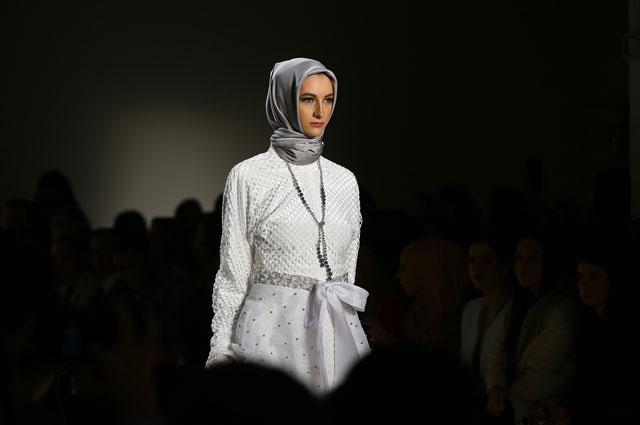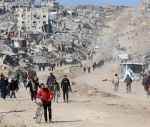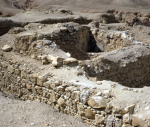You are here
Islamophobia in the age of Trump: scholar believes academia can do more to fight hate
By Saeb Rawashdeh - Apr 11,2018 - Last updated at Apr 12,2018

Louise Cainkar
As Donald Trump enters the second year of his four-year term as a president, many began unpacking their initial impressions of his unexpected victory and controversial administration.
One of them is Louise Cainkar, a sociologist and associate professor of Sociology and Social Welfare and Justice at Marquette University, in Milwaukee, where she also directs the major in Peace Studies and minor in Arab and Muslim American Studies.
Spending her entire career researching Arab and Muslim Americans, Cainkar argues that “long-standing anti-Arab racism became more strongly anti-Muslim in recent decades, yet all Arabs get caught up in its impacts, as well as people who are neither Arab nor Muslim, but are perceived to be, including Sikhs and Latinos”.
“Trump promoted himself as an anti-Muslim candidate quite openly during election campaigning, promising to register Muslims and stop their migration to the US. He called Syrian refugees ‘Trojan Horses’,” the sociologist and author of the book “Homeland Insecurity: The Arab American and Muslim American Experience after 9/11”, said.
Since his election, Trump has been a bit quieter in his statements, she continued, recognising that registering Muslims was not going to happen. Yet, he has, for example, used the domestic attack of a Muslim from Uzbekistan to support his call for the end of the US visa lottery.
“He has tried three times, in different executive orders, to implement a modified ‘Muslim ban,’ changing some of the countries affected each time,” Cainkar said, noting that the third order is still in the courts, but that the US Supreme Court has permitted its implementation in the meantime.
The US president halted the entire US refugee programme for a 120-day review in January 2017; he reinstated the programme in September 2017, but called for more review of 11 “high risk countries”. While these countries were not specified, informed sources reported in the media that they include: Egypt, Iran, Iraq, Libya, Mali, North Korea, Somalia, South Sudan, Sudan, Syria and Yemen, as well as Palestinians who reside in those countries. Trump also placed a 45,000 ceiling on new refugees in 2017/18, the lowest in the US refugee programme’s history, she underlined. Since Syrians are also on the “Muslim Ban” list, they will no longer be accepted as refugees, with the exception of a few family members who enjoy a “bona fide relationship” to refugees already in the US.
These measures affect Arabs and Muslims in the US in two ways, the scholar emphasised:
“The narratives and statements promote public hostility towards them, which is evidenced in soaring hate crimes stats in 2016 and 2017. Often the people affected are neither Arab nor Muslim, but presumed to be. On the other hand, people who dislike Trump [and there are many] are more active in resisting his hostility to Arabs and Muslims, or are at least learning more about them.”
Another way they affect Arabs and Muslims is in the level of immigration and naturalisation from banned countries. Trump’s policies make family reunification much more difficult, if not impossible, for persons originating from the banned countries and already residing in the states. Overall, his administration is slowing down on processing visas for certain countries, Cainkar stressed.
In general, brown and black people in America continue to face a myriad of challenges as a result of baseless racial stereotypes and right-wing fear mongering: “All are in some way portrayed as threat: Mexicans and Latinos are portrayed as criminals, Arabs and Muslims as terrorists, Africans as coming from ‘…hole countries’ and African Americans as public safety threats. This is despite the fact that in the US, most mass killings are done by white males, who are considered an exception to the white race.”
The role of public scholars, interfaith dialogue, and public education is now more important than ever to bridge the gaps created by widespread ignorance and political machinations. Cainkar maintained that “research shows that the most prejudiced against Muslims, for example, have never met a Muslim”. School curricula in the US also need to change, she added, as the current system promotes a western-centric view of the world.
“Neither of these, however, will change the attitudes and actions of the people in power right now,” she argued. “We need to always work for a better future, but we also must recognise that the persons in the leadership of the US right now do really believe that white Europeans and their descendants are a superior race. Shocking to say that in 2018, but nonetheless, [it’s] true”.
Cainkar added that her role as a scholar is not limited to the academic community.
“I believe in persistent writing and public speaking, I don’t just spend my time speaking to scholars. I use my research to speak to students across the US and to the US public. Scholars should be a positive change agent,” she concluded.
Related Articles
BOSTON — When the Masjid Al Kareem Mosque in Providence, Rhode Island, received a threatening letter in November calling Muslims a “vile and
AMMAN — A group of MPs on Sunday called on the government to ban US presidential hopeful Donald Trump from entering Jordan, citing the Repub
NEW YORK — In just two seasons, Indonesian Muslim designer Anniesa Hasibuan has made the hijab her trademark — and dazzled New York Fashion















